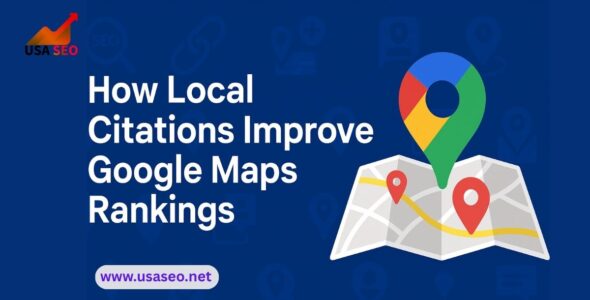In the era of digital marketing, local SEO (Search Engine Optimization) has transformed companies, particularly hotels and restaurants. Local SEO is the activity of improving a business’s online presence such that it appears prominently in search engine results for location-based queries. With the majority of people utilizing smartphones and search engines to locate places to eat, stay and visit, local SEO techniques are critical for hotel and culinary companies. In this post, we will look at how local SEO can benefit hotel and restaurant companies and why it is critical for growth and success in today’s competitive industry.
Understanding Local SEO Basics
Before delving into how local SEO benefits hotel and restaurant companies, it’s critical to understand what local SEO is and why it matters. Local SEO is improving a company’s online presence so that it appears higher in search engine results when customers look for services, goods, or companies near their area. For hotels and restaurants, this entails appearing in searches like best Italian restaurant near me or luxury hotels in New York.
Local SEO employs a variety of tactics to increase exposure. Some of these strategies include optimizing a website for relevant local keywords, generating and optimizing Google My Business (GMB) profiles, and promoting good customer feedback. Local SEO also includes creating local citations, being listed in local directories, and using location-specific content.

Improved online visibility and local search results.
For Hotel and Restaurant, the bulk of prospective consumers are locals or visitors from adjacent cities. As a consequence, showing in local search results may have a major influence on how many clients find your company. Google’s algorithm ranks webpages based on their local relevance. When a user does a location-based search, Google considers signals such as their IP address, search history, and current location to deliver the most relevant results for them.
This makes local SEO an essential tool for organizations looking to increase exposure in a particular geographic region. Local SEO enables Hotel and Restaurant to appear in local packs, which are the first three companies shown below the map in Google search results. Local packs are valuable real estate on search engine results pages (SERPs) since they provide a quick glimpse of vital information such as the company name, location, phone number, and reviews.
When Hotel and Restaurant are shown in local packs, prospective consumers searching for nearby choices are more likely to choose them. As a result, implementing a strong local SEO strategy is critical for increasing your online presence and driving foot traffic to your store.
Better Targeting of Potential Customers
1. Localized Keywords
Targeting localized keywords ensures that your company appears in relevant local searches. By including city names, neighborhoods, or regional phrases in your content, you might attract clients seeking services or goods in your area, increasing your conversion rate.
2. Personalized content.
Personalized content based on consumer preferences or local trends is more likely to resonate with your target audience. Creating content that tackles local events, news, or concerns may boost engagement and make your company more appealing to prospective clients in your target market.
3. Google My Business Optimization.
Optimizing your Google My Business page allows you to target clients who are actively looking for local companies. Keeping your profile up to date with correct information, customer reviews, and appealing photographs improves your chances of appearing in local searches and attracting local consumers.
4. Location-based advertisements
Location-based advertising enables you to target prospective clients in a particular geographical region. Businesses may use platforms like Google advertising or Facebook to create geographic criteria to guarantee their advertising is seen by people in their area, resulting in more relevant traffic and higher conversion rates.
5. Mobile Optimization.
With the majority of local searches taking place on mobile devices, optimizing your website for mobile consumers is critical. Providing a speedy, easy-to-navigate mobile experience helps prospective consumers locate what they need quickly, increasing the likelihood that they will visit your company or make a purchase.

Optimizing Google My Business to Improve Engagement
Google My Business (GMB) is a very efficient tool for local SEO. It’s a free service from Google that enables companies to generate a thorough listing that appears in Google Search and Maps. A well-optimized Google My Business page may boost a Hotel and Restaurant exposure and make it simpler for prospective customers to locate them.
GMB profiles are important for Hotel and Restaurant because they provide critical information that consumers often search for, including location, hours of operation, contact information, website links, and customer reviews. Filling up and updating your GMB profile ensures that clients get the correct information, which may lead to increased bookings and reservations.
A GMB profile also enables clients to leave reviews, ask questions, and see images of your business. Positive ratings on Google have a big impact on prospective consumers’ selections. Local SEO techniques encourage consumers to submit good feedback, which benefits a company’s reputation and position in local search results.
Enhanced Customer Reviews and Reputation Management
Customers’ reviews have a significant influence on local SEO results, particularly for restaurants and motels. Reviews have an impact not just on search engine results, but also on prospective customers’ decisions to book a hotel room or make a restaurant reservation. Search engines, notably Google, value reviews since they assist in determining a business’s authenticity and trustworthiness.
The more favorable reviews your company receives, the higher it will appear in local search results. Additionally, Google’s algorithm takes into account the frequency of new reviews, the total rating, and the interaction with comments. Customer evaluations are critical in helping Hotel and Restaurant establish a favorable image. By encouraging pleased consumers to submit reviews, you may boost your company’s legitimacy, exposure, and rankings.

Mobile Optimization for On-the-Go Customers
In 2025, mobile search will continue to dominate, with a significant share of consumers utilizing smartphones to discover local businesses. Whether they’re searching for a hotel room, a local restaurant, or a last-minute reservation, mobile users depend on search engines to discover what they need while on the move. Local SEO methods must make sure that a Hotel and Restaurant website is mobile-friendly and optimized for mobile searches.
This includes responsive design, quick loading times, and user-friendly interfaces. Websites that do not optimize for mobile devices risk losing clients to rivals that provide a flawless mobile experience. Furthermore, mobile searches often include explicit purposes. When searching for a Hotel and Restaurant, most customers want to book right away or obtain directions to the place. Clear, easy-to-find information such as phone numbers, locations, and a reservation or booking option may assist mobile users become customers.
Effective Local Content Marketing
What is local content marketing?
Local content marketing focuses on providing material that appeals to a particular geographical audience. Sharing stories, events, or issues important to a local community engages prospective consumers and improves search engine exposure. This method enables companies to engage with nearby customers and stand out in local search results.
Why is local content important in SEO?
Local content marketing improves SEO by focusing on location-specific keywords and addressing local interests. When companies generate content focusing on local topics, they enhance their chances of ranking better in local search results, making them more visible to customers looking for nearby goods or services.
Which kind of local content is most effective?
Blog entries on local events, interviews with local influencers, insights into the local industry, and promotions related to area holidays or occurrences are all examples of effective local content. Creating material that promotes community participation or celebrates local culture connects with audiences and increases consumer engagement.
How Can Social Media Improve Local Content Marketing?
Businesses may use social media to swiftly and interactively disseminate local content. Businesses may connect directly with their local audience, enhance brand recognition, and drive visitors to their website or physical presence by providing region-specific updates, event promotions, or highlighting community activity.
How Can You Determine the Success of Local Content?
Measuring the success of local content entails analyzing indicators like website traffic from local searches, social media interaction, and the number of local leads produced. Google Analytics, social media insights, and local search ranking data all give useful information for determining how effectively the material interacts with the local audience.

Local Link Building and Citation
Another key local SEO method is to build local citations, which are mentions of your company on other websites. Citations contain your business’s name, address, and phone number (NAP) as published in local directories, websites, or news publications. Having consistent and accurate citations across several internet platforms increases your trust and helps you rank higher in local search results.
Local link-building tactics may help a Hotel and Restaurant local SEO efforts. This might include obtaining backlinks from local blogs, collaborating with influencers or local companies, or being highlighted in local news publications. The more local connections your firm acquires, the more authoritative and trustworthy it seems to search engines.
Monitoring and Analyzing Local SEO Performance
- Google Analytics: Google Analytics is an effective tool for monitoring local SEO performance. Businesses may assess their ability to attract local visitors by tracking important indicators such as website traffic, bounce rates, and user demographics. This data aids in the refinement of SEO strategies aimed at increasing engagement and conversion rates.
- Google Search Console: Google Search Console provides information about how your website is doing in local search results. It gives information on search queries, click-through rates, and page rankings. Businesses may use this data to discover high-performing content as well as places that need to be optimized for improved local exposure.
- Local Rank Tracking Solutions: Using local rank-tracking solutions, such as Bright Local or Moz, companies may monitor their ranks in particular geographic areas. These tools measure how well a website performs in local search results, allowing firms to see if their local SEO efforts are effective and adapt strategy appropriately.

Conclusion
Finally, local SEO may help Hotel and Restaurant improve their companies by increasing online exposure, attracting more targeted clients, and increasing customer interaction. Businesses in the hotel and culinary sectors may benefit from local SEO by using tools such as Google My Business, optimizing for mobile, and continuously monitoring their online reputation.
As customers increasingly depend on search engines to identify nearby hotels and restaurants, employing strong local SEO methods can keep your company competitive and visible in an ever-changing digital market. Local SEO is no longer a choice for Hotel and Restaurant trying to remain competitive; it’s a must-have investment for long-term success.
 My Account
My Account 


